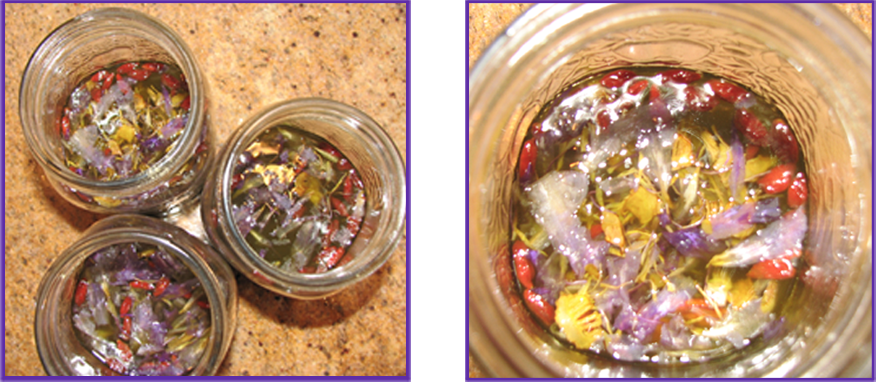Alcohol as a beneficial ingrediant in
Passion Flower Power

For those with concerns regarding the consumption of alcohol, it may be helpful to remember that the amount of alcohol present in a typical dose of herbal tincture is negligible. Doses may range from just a few drops to two droppers full (approximately 60 drops) each time, where a two-dropper dosage contains about as much alcohol as one ripe banana. Or, if preferred, consuming the alcohol may be avoided entirely, just by adding the tincture to 1/4 cup of steaming water or tea, allowing it to cool (the alcohol will evaporate after several seconds), and then drinking it.
Most herbal tinctures contain a high-proof grain alcohol as their base, and for good reason. The compelling truth is that alcohol is the superior choice, when compared with other base ingredients like vegetable glycerine, vinegar, and honey. In traditional Chinese medicine, alcohol is embraced and warmly welcomed into the administration of healing formulas as a kind of "adjunct herb" in its own right. This is due to its propensity for strengthening Yang energies, which helps to vitalize the blood, harmonize "qi" and open the meridians.
In addition, alcohol is quite simply the most effective base ingredient for drawing out the beneficial properties of an herb - in this case, the passion flower. During a soaking process that can take between four and eight weeks, the alcohol extracts essential oils, alkaloids and phytochemicals, which are necessary for the efficiency of the formula. The use of alcohol also helps to speed the delivery of herbal constituents directly into the bloodstream, by increasing the permeability of mucous membranes in the mouth. It plays a significant role too in preserving the shelf-life potency of the herb's medicinal properties.



